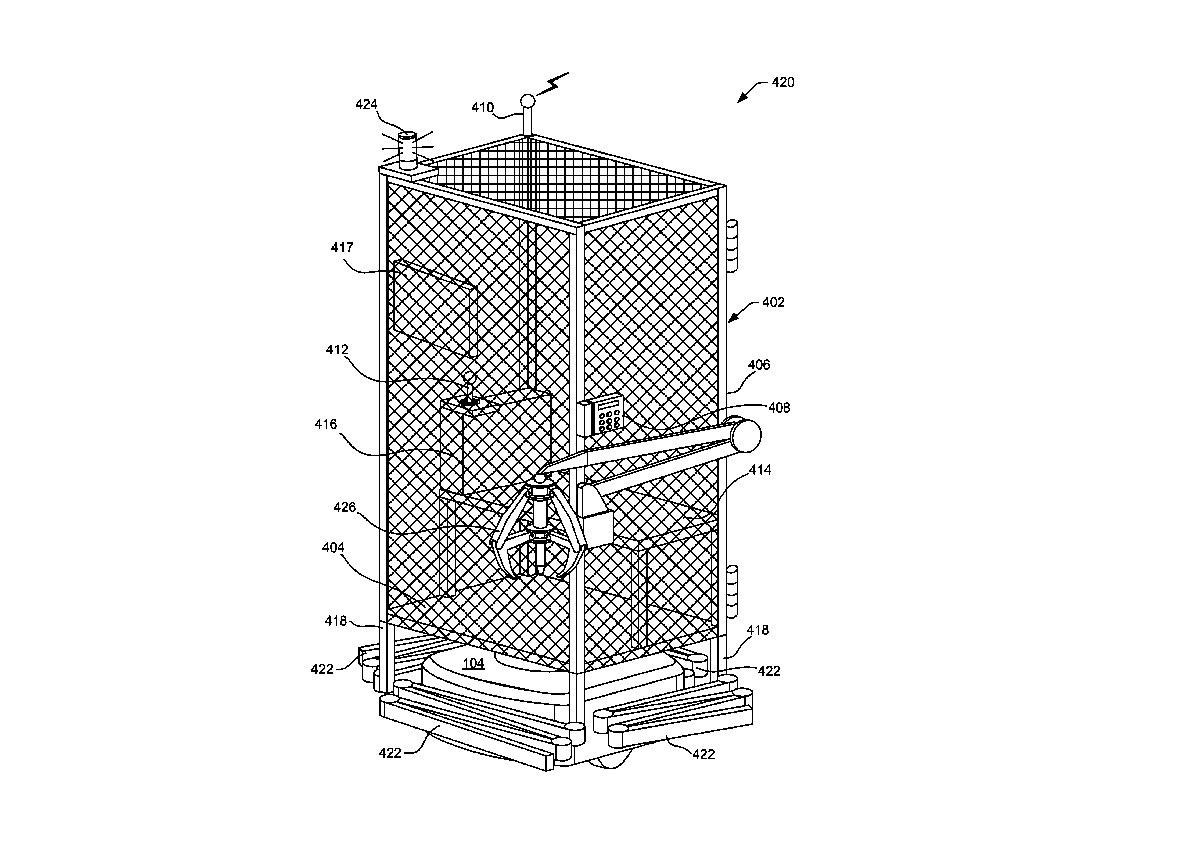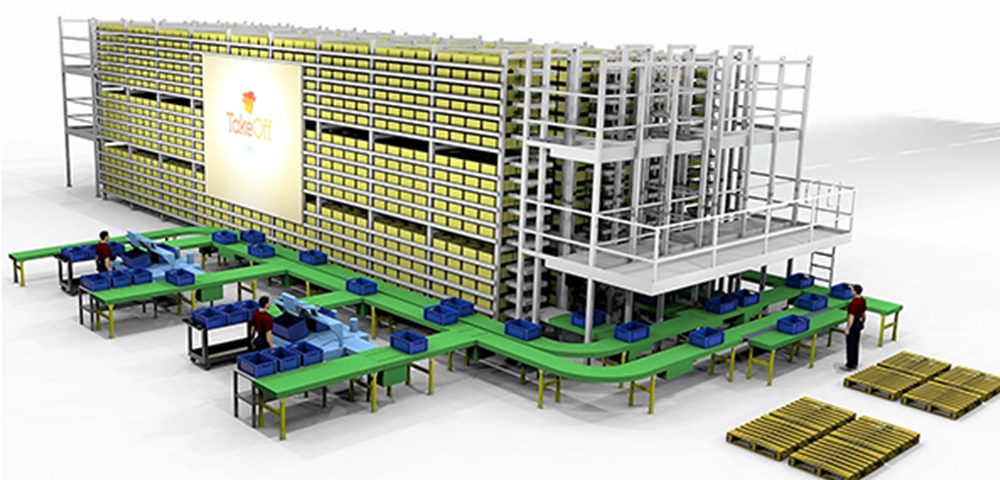I got a few calls this week from logistics investors as well as startups. We talked about the future of logistics for a bit.
Here are my predictions for the major logistics moves in the 2020s
The next 10 years is not going to involve magical AI or major tech breakthroughs. Most of the this industry just needs average tech intelligence to improve. You would be surprised to know how much of the world still runs on printed papers and manually edited excel sheets.
Logistics players will get into e-commerce and consumers facing products
At this point, e-commerce is becoming a commodity. At any one time, there may be about 100,000 extremely popular products. The manufacturers of these products sell on Amazon and Taobao and Walmart and Etsy and oh! they also have their own website from the 90s and also dropship…
Customers have items and brands in mind and they will not really care which e-commerce store they get it through. Already many sites list the same products and scrape each other to make sure the price is within a few dollars. Amazon is getting less reliable with their shipping times while their competitors are getting better at providing two day shipping. You only need four warehouses in the USA to provide 2 day shipping, it isn’t a huge barrier.
The logistics industry is amazing when it comes to commodities. They are reliable, know how to keep their costs down, and can find ever consistent labor to execute a known task.

Customers are only as loyal as a company is shitty. Too many products are on amazon as it gets globally popular. The quality and differentiation of every product is not big enough and you game the reviews too easily. Jeff Bezos isn’t likable enough. The general public is thinking: he cheats on his wife and patents a wage cage and he’s the richest guy alive, but doesn’t donate to charity the way those other rich guys do. He doesn’t care about his employees and shaping the world the way Steve Jobs did. He’s just going for the lowest cost imaginable.
Amazon’s possible advantage will be consistent 1 day shipping, which takes at least 17 warehouses, and 1 hour shipping in major cities. It will be impossible to provide one hour shipping to everyone in the USA due to population densities. At the moment, actually receiving your product sucks. It can be a several day dance between being home and a rushed, underpaid contracted delivery guy.
Incumbent logistics CEOs will get annoyed with the ridiculous valuations. The CEOs will have learned by now. When you let Amazon and these Silicon Valley-type startups control the sales, they will later just squeeze you out and make their own logistics network anyway. Why is a simple CRUD site over their 50 year old network worth a billion dollars anyway? Logistics companies will band together logistics companies will band together and make a global network. They have decades old special partnerships and access to airplane runways to unload and pack cargo that these tech companies will never be able to have. Using this, they’ll be able to provide faster and cheaper shipping.
You know when someone starts winning too hard at risk and all the other players stop attacking each other and just go for the top player? That’s what will happen here.
If successful, retailers and warehouses become friends again. Why did we let Amazon come between us and take both our margins? They’ll ask.
API-ification of business units
Anytime a player gets beat too hard, they start to look at startups to innovate before dying. The rise of startup culture will make it more likely for them to buy one or partner with one cheaply.
With logistics companies banding together, they will work with startups to start creating API’s for all their services. First it will be internal, then it will be external. An API for package forwarding, product fulfillment, customs forms, duties and taxes, you name it. Ever ask a startup to go get a contract with a warehouse? They get scared. These APIs will change the opaque and intimidating industry into something tech friendly. There will be clarity into how businesses work and things are priced.
The benefits will be enormous. That dance you perform with trying to be home when you receive your packages? Suddenly you will be able to get a live view of the truck and change it to where you are in the city. The USA is so far behind the UK in delivery, they already do this.
People want to know how things work internally
At the same time the logistics services are becoming transparent, a tangential trend is already in full effect. Customers want to know more about the companies they buy from. They are asking “How much waste will this order create?” I ordered a tiny usb device and it came a giant box full of plastic padding. I would have bought a mousepad and outlet too if I knew the environmental impact would have been reduced by more efficient packing.
Right now e-commerce works in two teams that do not talk to each other. You have one system for sales and a completely separate system for logistics. Your marketing teams plans all these deals and how to make the best ads and the logistics team figures out how to get things out the door quickly and cheaply. Soon companies will start offering sales and tailoring the website based on logistics data.

Customers don’t know that the supplier of their favorite chocolate comes into the warehouse in cases of 16 chocolate boxes. Let’s say they order 11 boxes of chocolate. It may end up being cheaper, faster, and less wasteful to send them 16 anyway. The warehouse worker can just slap a label on the case instead of picking and packing 11 that they have to double count. The website can offer them a discount and explain it is less wasteful. People are becoming curious, people are realizing their dollar is a vote that shapes the world.
The world welcomes microfulfillment
Logistics companies will eventually become tech-savvy enough to directly market to the general consumer. They will start to be “known” and make enough money to be sexy enough for programmers to join. How many Computer Science students do you currently know who are interested in logistics companies? I know 0. Now how many want to work for Amazon?
All warehouses are a fulfillment service. This just means the process of receiving, storing, picking, packing, packaging or shipping orders for goods. Microfulfillment is providing any or all of these services on a smaller level so they can be closer and faster to the end customer. The history of logistics has typically been to have a few giant warehouses away from cities where land and labor is cheap. Now we have automation and tons of consumer sales data to turn nearly anything into miniature warehouse and get it as close to a customer as possible.
Here’s where the more bleeding edge innovations will come in.
Manless Shelves
Amazon Go will be the most popular grocery store because who waits in lines anymore? We will also see a huge opportunity of the same technology applied to smaller and smaller areas in cities though by other companies. The technology is easier and more accurate with these small spaces. 24-hour fridges with a couple cameras pointed at them will be all over the city. All you need is the app to unlock the fridge and you get charged what you take. Manless fridges and shelves will be cheap to stock with continually changing and even odd shaped goods. This means they can be stocked with more variety, higher quality, and fresher goods than a traditional vending machine.

Dozens of companies in China have already started doing this.
The retail store industry will die even more as the market buys more items from these “manless shelves”. Retail stores can only compete with online stores on price and speed. Even if online sales gets to one hour delivery reliably, it isn’t faster than a retail store. Retailers can’t, however, compete with a manless shelf. It’s basically a micro-retail store that can be even cheaper and never closes. Retail space will transform into pop-ups and showcases for online sales. IKEA is already amazing at this. They are currently the number #2 furniture store by sales. They will easily become #1.
Warehouses will become vending machines
Other warehouses near major cities will become giant vending machines themselves, especially the ones owned by Amazon. Same day and one hour deliveries require many more warehouses with more automation and less skilled warehouse workers to operate them. Kiva Systems already allows Amazon to be partial vending machines, although that is only in some of their warehouses.

These warehouses are automated and simplified to the point that they literally look like giant vending machines. Takeoff Technologies is already trying this for groceries.

Other warehouses will follow suit to compete with Amazon. At some point these warehouses could potentially become self-serve where you can just pick up stuff. Not yet though. There will be a different vending machine-like warehouse setup for each industry. Clothes will be handled one way, food another, electronics yet another. Each will be specialized to that industry. To really get down to one hour, they will send out trucks to your location. The trucks will be full of certain popular SKUs and a worker will manually do the final pick and pack at your location.
